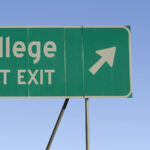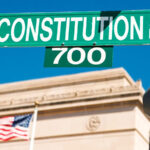- Current Events New Alabama Congressional District Selects Candidates
- Current Events Nebraska Rejects Winner-Take-All Proposal
- Citizenship Voting Under Age 18
- Citizenship Citizenship in Action
- Democratic Party Biden’s and Trump’s Recent Primary Results
- Elections Trump and Biden Win South Carolina and Michigan Primaries
Villages of Reconciliation
A quarter-century ago, the country of Rwanda was torn apart by a bitter and brutal civil war that claimed countless lives. All of these years later, survivors still cope with devastating physical and emotional scars. The country’s leadership is now taking a unique approach to healing divisions between groups that would have seemed insurmountable twenty-five years ago. But is it working? Here, Election Central takes a closer look.
What Happened Then?
In 1994, Rwanda was destroyed by violent clashes between two different ethnic groups: the Hutus and the Tutsis. The clash began on April 6, when a plane carrying President Juvenal Habyarimana, a Hutu, was shot down and crashed. President Habyarimana died in the crash. The Hutu population blamed the Tutsi minority and brutally slaughtered them out of revenge. During this hundred-day period of terrible violence, Hutu nationalists (led by local officials and government leaders) killed roughly 800,000 of their ethnic Tutsi neighbors–roughly 75 percent of the minority Tutsi population. Also killed were moderate Hutus who tried to protect Tutsis from being murdered, while two million refugees (mostly moderate Hutus) fled the country for camps in the Congo.
What’s Happening Now?
In the wake of the genocide, an International Criminal Tribunal was established, and many of the Hutu killers were convicted of their crimes and sent to prison. Today, six “reconciliation villages” have been established throughout the country by Prison Fellowship Rwanda, a Christian group funded by the U.S. government, the United Nations, and others. Here in these villages, the convicts are re-integrated into society by living side by side with genocide survivors. In order to participate, they must publicly apologize for their crimes, and are then forgiven by their Tutsi neighbors. It’s estimated that about 3,000 survivors and ex-convicts are currently living in these villages, which also provide help with housing and education costs.
Can These Wounds Be Healed?
Some witnesses speak to the remarkable relationships that have formed between survivors and the same people who once committed unspeakable violence against them, as well as against their friends and neighbors. They point to instances of survivors becoming friends with the same people who once terrorized them. Survivors say that they are glad for this opportunity to forgive, and that letting go of their anger was necessary in order to move on with their lives.
Some critics, however, are more skeptical. Some genocide experts point out that the killers may have ulterior motives for their participation in the program. For example, many are happy to apologize for their crimes if it means that they will get out of prison, or receive funding for shelter or an education. They also say that the forgiveness offered by the survivors would be more meaningful if it weren’t required by the government and the charitable organizations leading the villages in exchange for money for housing or school.



